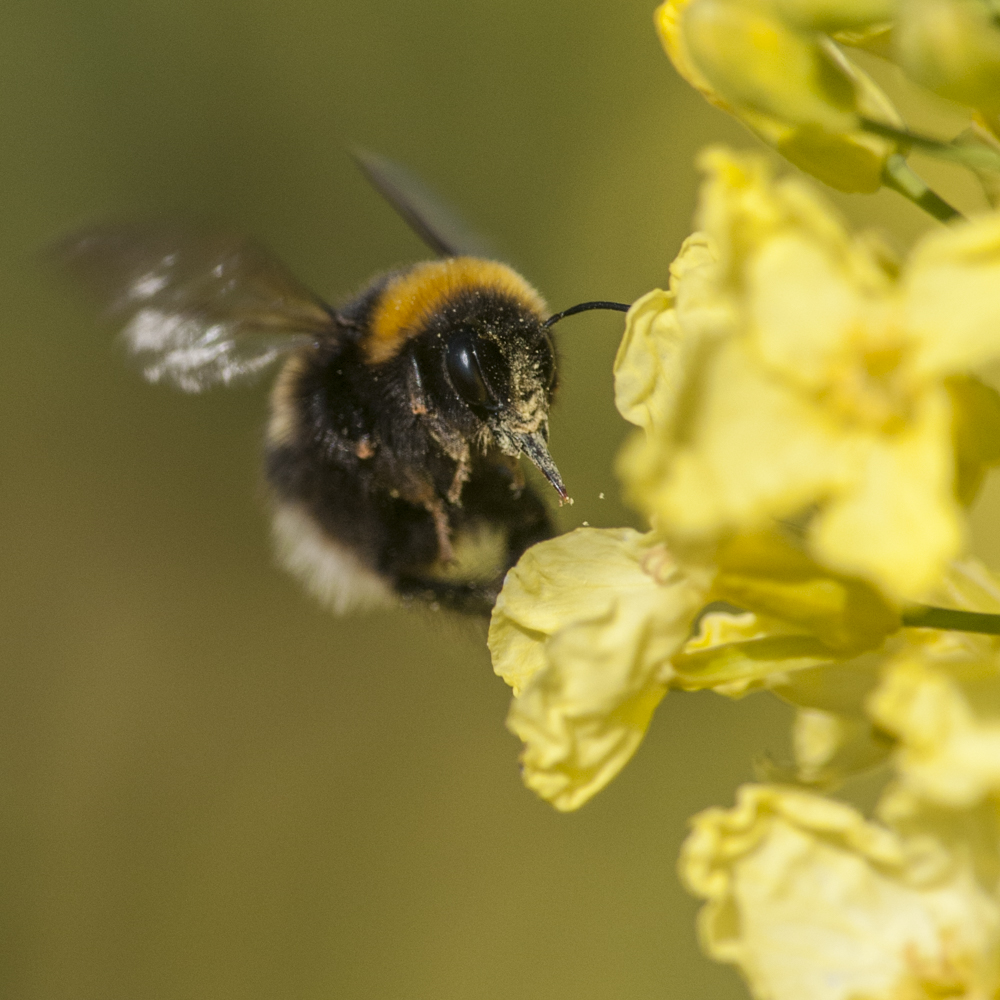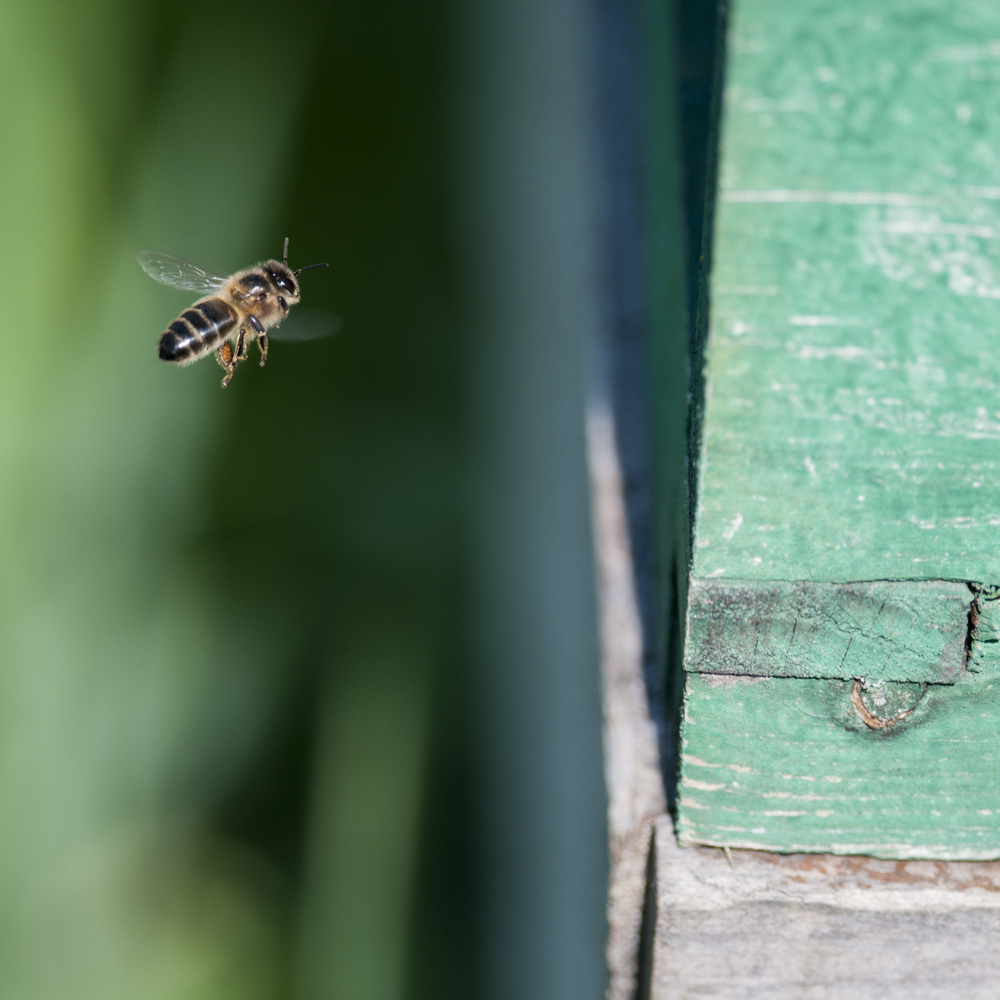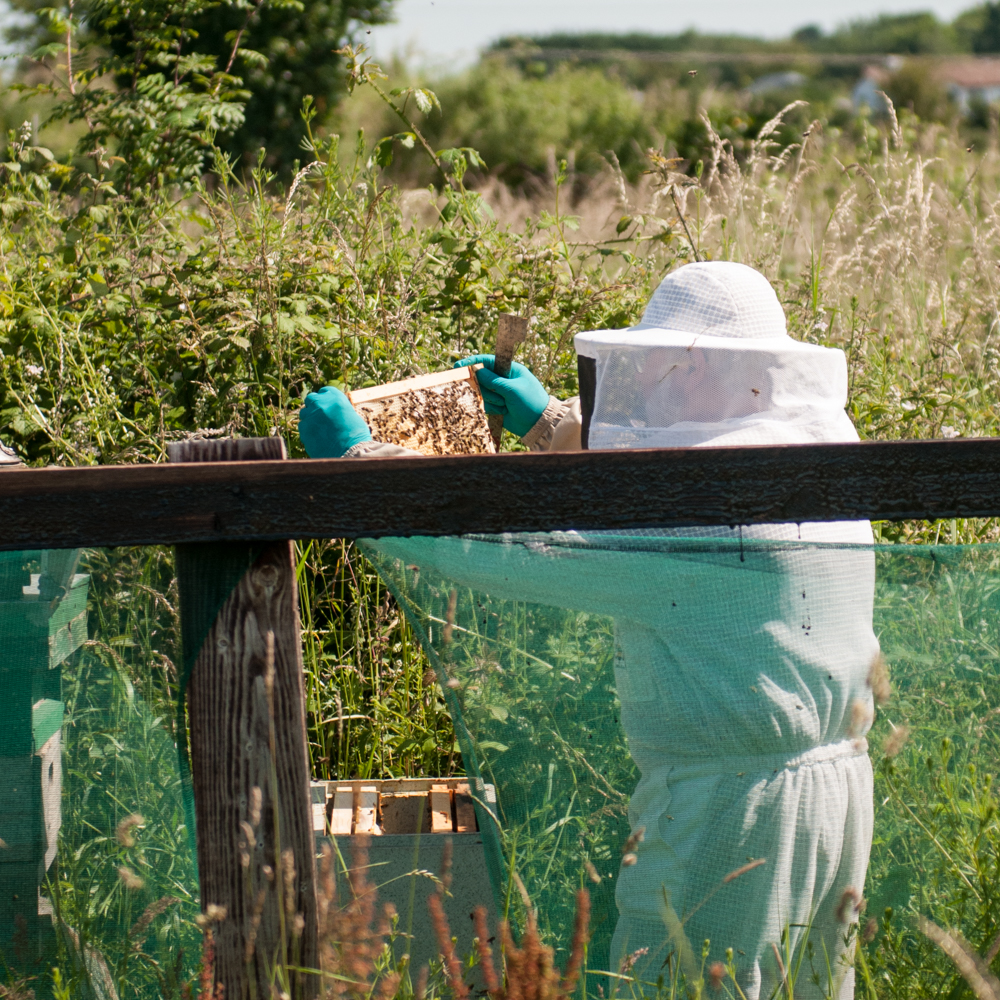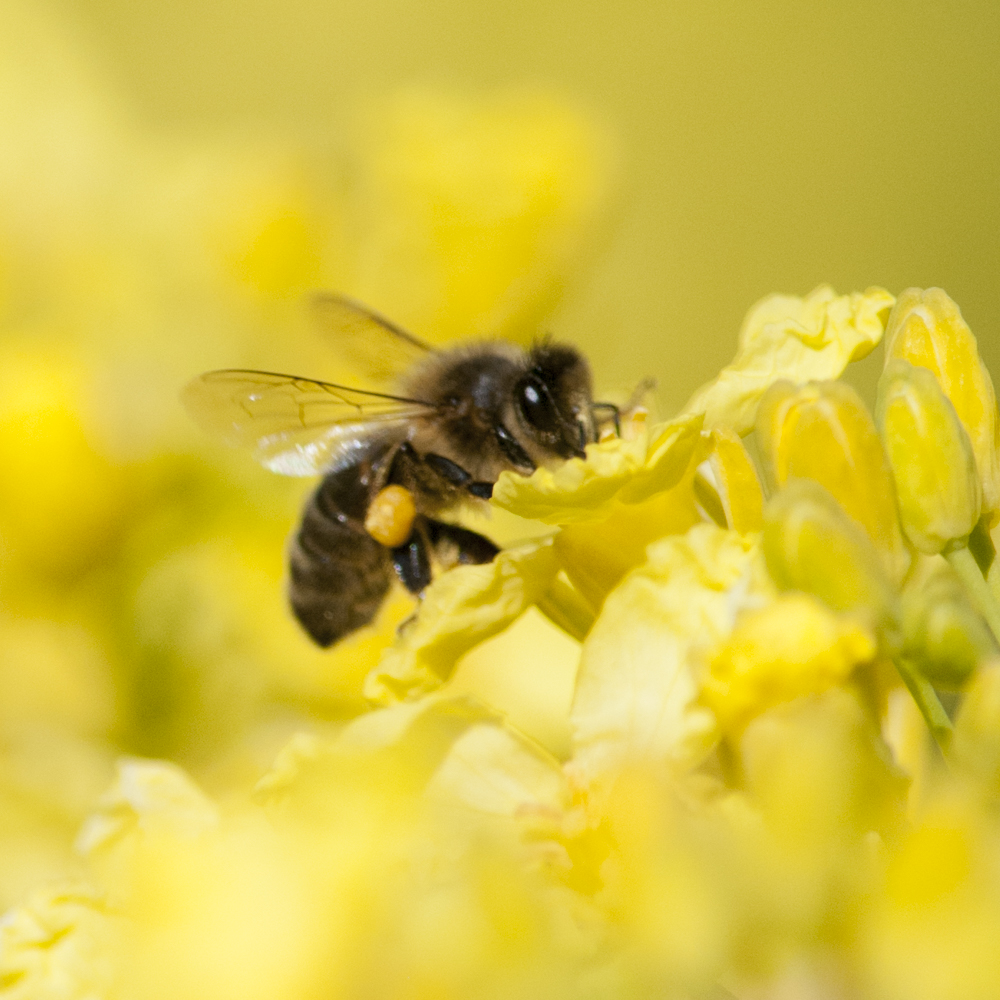
There are so many reasons to choose organic – the clean, agri-chemical free, tasty food, the sustainable farming methods which prevent water and air pollution…but perhaps the most important reason is to protect bees and other pollinators. Without pollinators, we would have much smaller fruit and vegetable harvests, and seeds wouldn’t set which would mean even smaller harvests the following year. While some of our crops are pollinated by wind, if we lost bees and other pollinators the diversity and health of our diet would drastically change for the worse and have a huge knock-on effect on our entire ecosystem.
Bees and other pollinators are essential for life as we know it. Unfortunately habitat loss, pesticides, mono-cropping, pest/disease, air pollution, drought and climate change are all leading to a massive decline in pollinators. So how can we help? Here are our 3 top tips for helping out our buzzing buddies.
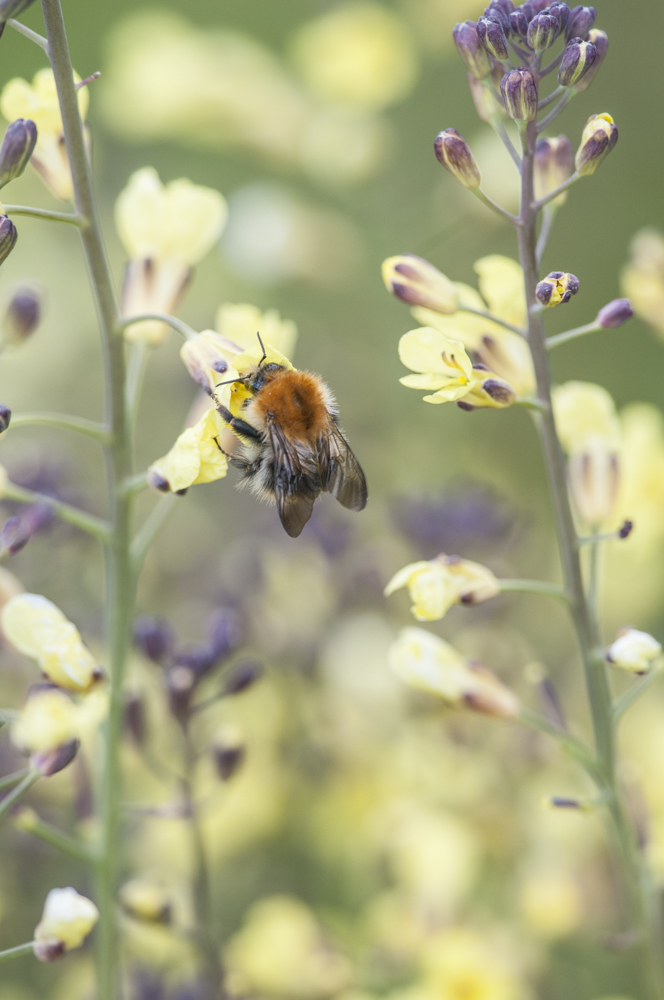
1. Choose Organic
Organic agriculture avoids the use of pesticides, most of which not only knock out unwanted critters but the good guys like bees and other pollinators too. Organic farming methods work with nature to prevent pests naturally. Providing wildlife habitats (like hedgerows, wildflower corridors, ponds and native tree areas), rotating crops and planting a diverse mix of crops in fields provides a natural balance so pests can be taken care of by their natural predators. The lack of nasty chemicals in organic farms means nearby water sources and air are not polluted. Bees and other pollinators are very sensitive to pollution so organic is the way to go. Make it easy for yourself by ordering online, we deliver nationwide – check out what we can do here.
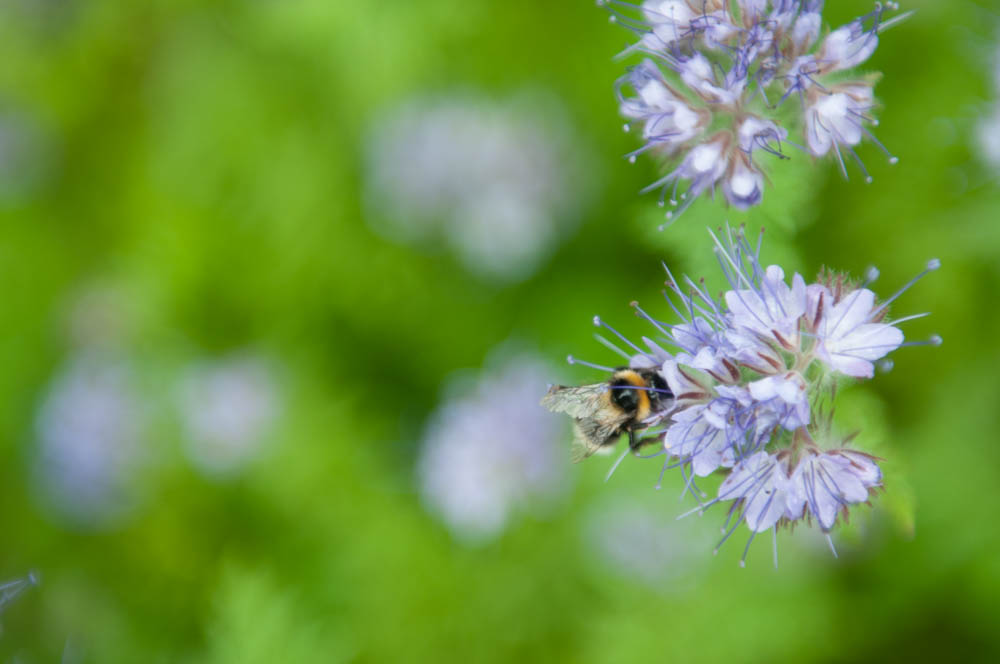
2. Plant Native Trees and Wildflowers
Many pollinators have evolved to survive off very specific, native plants. Planting native wildflowers, trees and bushes in hedgerows provide lots of food for all the important pollinators, not just honey bees. Find out which plants are the most wildlife friendly in your area and consider planting them in your garden or window box. If you have no space to plant, consider donating to a local tree planting charity instead.
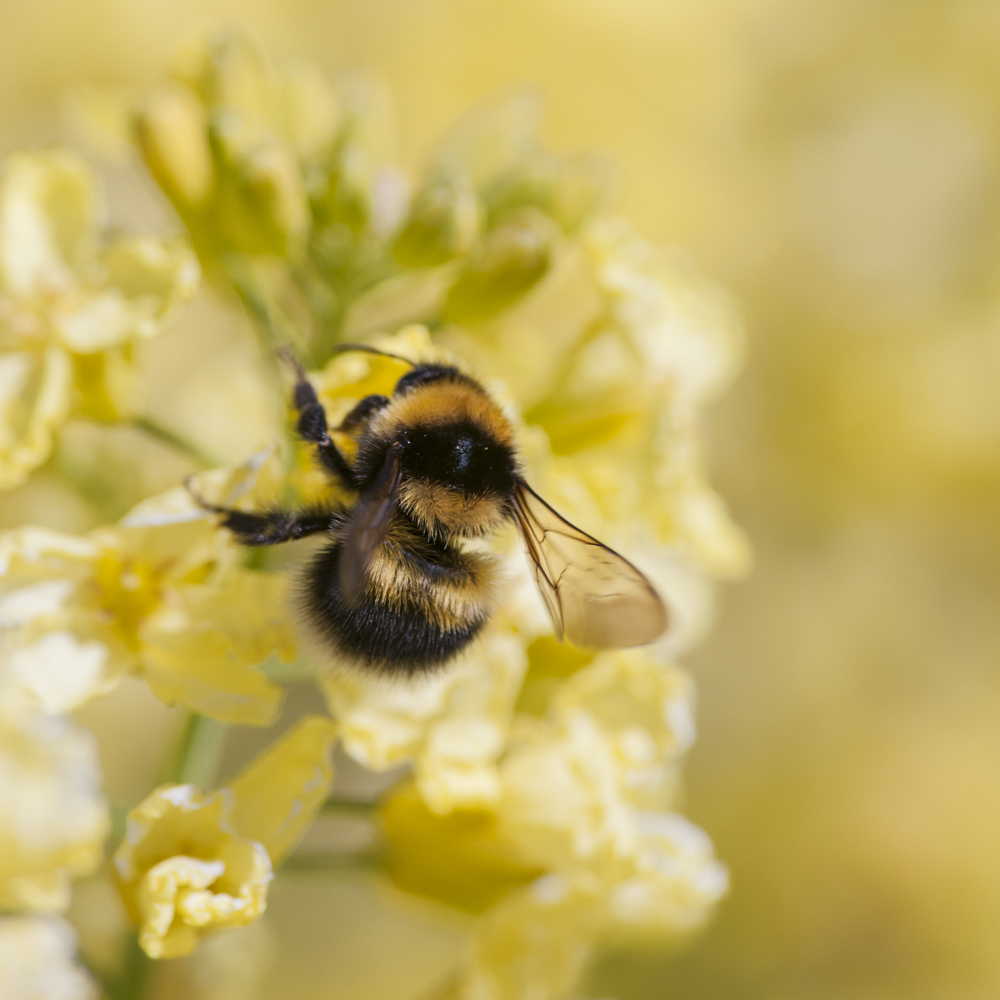
3. Take part in ‘No Mow May’
No Mow May is exactly what it sounds like. Are you up for the challenge? Many of the earliest food sources for pollinators can be found in your lawn. So let it go wild for the month of May, after that there’ll be loads of other flowers around. You could even do a compromise by just mowing a path and seating area in your lawn and leaving the rest to the bees. We would love to see your wild patches – please share photos in the comments. You may be pleasantly surprised at how beautiful ‘weeds’ can be. Worried about what the neighbours will say? Pop a sign in your garden to explain your mission to save the bees.

